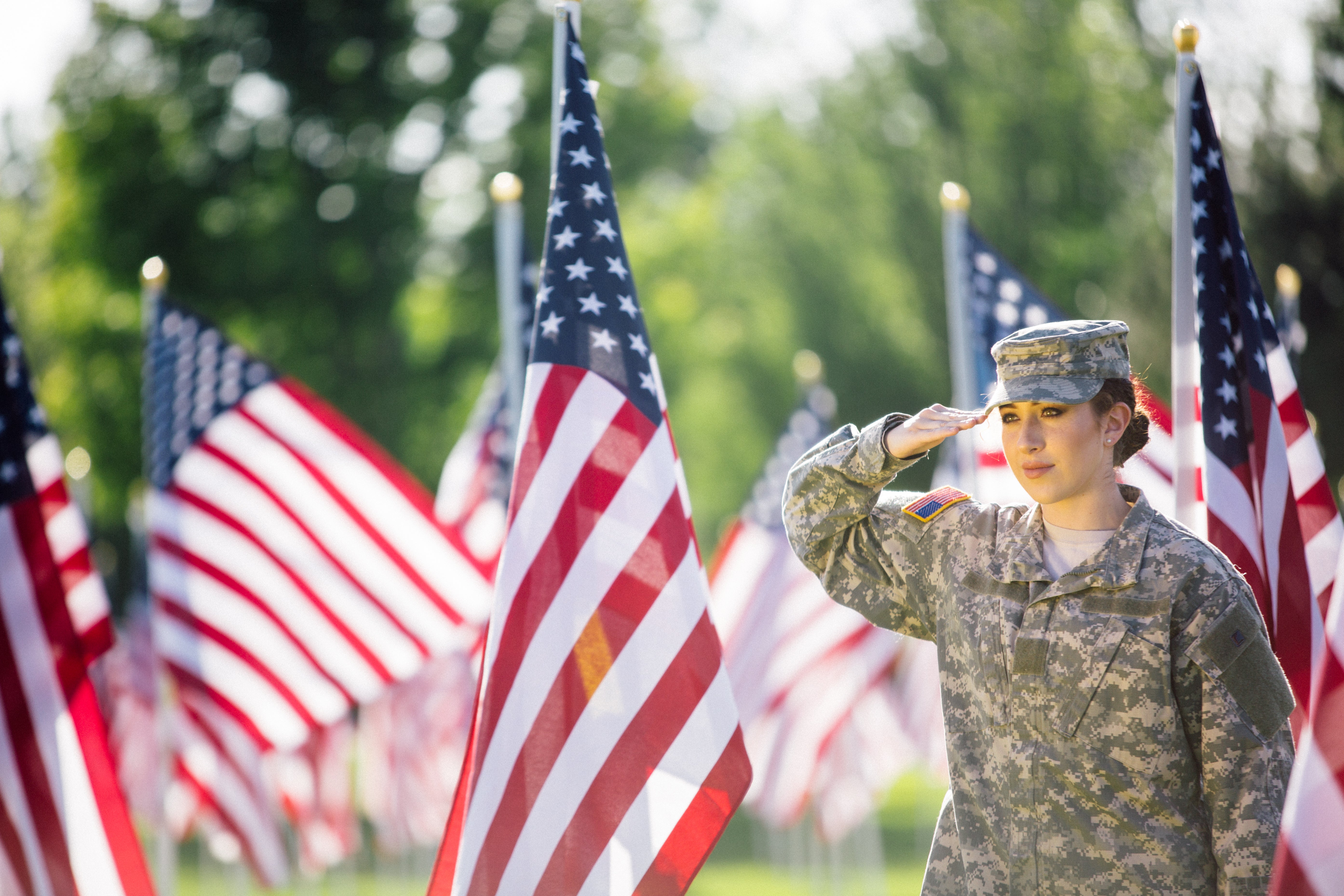Female soldier criticises US Army grooming standards after being required to remove French manicure
Army announced updated grooming standards this year

A female soldier in the National Guard has shared her grievances over the US Army’s uniform protocol while revealing that she had to remove her French manicure to adhere to guidelines.
On Thursday, Major General Johanna Clyborne, a lawyer who focuses on legal issues particular to the United States Armed Forces, and who is currently assigned the assistant adjutant general in the Minnesota National Guard, addressed the strict uniform rules on Twitter.
“Why the Army thinks a French manicure is an ‘obnoxious’ colour compared to the civilian world, which views it as an understated yet professional look is beyond me,” Clyborne tweeted alongside a photo of her removing the nail polish. “But I have to be in uniform tomorrow, so here we are. It looked nice while it lasted.”
Earlier this year, the Army announced new grooming standards, which included a more-relaxed stance on hairstyles, earrings and nail polish.
Under the updated guidance, the Army approved the use of additional lipstick and nail polish colours, as well as “the wear of clear nail polish by male soldiers,” according to the Army News Service.
The guidance also noted that “females have the option to wear an American manicure,” which is described as “a two-tone nail style that maintains a natural appearance,” while “unauthorised pigments” include colours such as purple, blue, pink, green, orange, bright red, and fluorescent or neon.
According to StayGlam, an American manicure is a more subtle version of a French manicure, with the style using more natural colours rather than the white that is typical of a French design.
The uniform protocol also prohibits some shapes, such as coffin, ballerina or stiletto nails, for soldiers “while in uniform or on duty in civilian clothes”.
In a follow-up tweet in response to someone who admitted that they didn’t know about the rule, Clyborne reiterated that a French manicure is considered an “unnatural colour” under the grooming guidelines outlined in “AR 670-1”.
“AR 670-1 considers it an unnatural colour. You can however wear an American manicure but it’s a weird pink that doesn’t look as nice,” she wrote.
Clyborne then acknowledged that it can be difficult “balancing a civilian professional look” with the grooming standards required when she is in uniform, as she often has to switch on and off.
“Balancing a civilian professional look with the ease of [switching] in and out of uniform as often as I do and still [being] compliant can be a challenge,” she wrote.
The tweet prompted a range of responses, with many critical of the soldier for publicly sharing her issue with the military grooming standards.
“This is embarrassing,” one person responded, while another said: “Can we have serious people in positions of power?”
Someone else suggested that Clyborne delete her tweet, claiming that it is “extremely unprofessional for a general grade officer to question uniform standards in front of the troops” and that it “undermines discipline and erodes the authority needed by NCOs [non-commissioned officers] to maintain standards”.
However, others defended Clyborne on the basis that, despite being a member of the armed forces, she is still a “person”.
“She never said her nails were a priority, she simply posted something relatable, because she is a person… these comments though… unbelievable. These same people want relatable, approachable leaders… how dare a female soldier get her nails done. Wtf?” they wrote.
When announcing the updated grooming Army standards, which went into effect in February, Sgt Maj Brian Sanders, senior enlisted leader of Army G-1’s uniform policy branch, said that the revisions were made in an effort to recognise soldiers as human beings.
“This is one of the many facets of putting our people first and recognizing who they are as human beings,” he said. “Their identity and diverse backgrounds are what makes the Army an ultimate fighting force.”
The Independent has contacted the Minnesota National Guard and Clyborne for comment.
Subscribe to Independent Premium to bookmark this article
Want to bookmark your favourite articles and stories to read or reference later? Start your Independent Premium subscription today.

Join our commenting forum
Join thought-provoking conversations, follow other Independent readers and see their replies